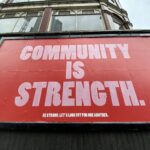Last week we celebrated the birthday of Martin Luther King Jr. My post invited us to reflect on progress and reversals in America’s ongoing struggle to reach our stated aspiration of “liberty and justice for all.” This week I will celebrate the marriage of Bill and Lois Wilson which took place on January 24, 1918, and honor their contribution to “liberty and justice for all.”
The Wilsons’ contribution is huge in America’s history, yet little known. Our culture’s denial of addictions and the fact that the Wilsons co-founded organizations that were intentionally “Anonymous” contribute to this lack of awareness. We can learn a lot from the Wilsons and the Twelve Step movement.
Bill Wilson co-founded Alcoholics Anonymous (A.A.) with Dr. Bob Smith, an Akron physician, on June 10, 1935. Lois Wilson co-founded Al-Anon Family Groups (Al-Anon), with a Westchester County, New York neighbor Anne Bingham, for families and friends of people with drinking problems in the spring of 1951.
These two actions launched what today is the Twelve-Step Movement. This movement has grown from Alcoholics Anonymous and Al-Anon to include dozens of other Twelve Step programs aimed at offering aid to people with all kinds of addictions and to their families. More recently, a broader Recovery Advocacy Movement has developed.
You may likely have a friend or family member who suffers from alcoholism, drug addiction, an eating disorder, a gambling or spending problem, or an addiction to sex or work, among others. Are they free to enjoy their life? If addiction has begun its progression, they are not. Addiction of any kind brings with it the feeling of “never enough”, and an obsession for more. There’s often a growing feeling of shame and self-loathing.
It was not a noble gesture by the Wilsons to start A.A. and Al-Anon. It was an act of desperation, fueled by Bill Wilson’s near-fatal battle with his own alcoholism. Bill and Lois met near Manchester, Vermont where Lois’s family had a summer home. Bill lived in the nearby town of East Rutland. They fell in love slowly over several summers. Once the relationship got going, they were on fire with love for each other and big ideas. They married in early 1918.
Bill’s drinking began almost immediately and progressed quickly. With little respite, Lois lived through 17 years of hell while Bill fought his alcoholism.
Without Lois’s unshakeable love for Bill, Bill would have died from his disease. Bill finally found his freedom after meeting up with Dr. Bob with whom he collaborated in the development of the Twelve Steps used in Alcoholics Anonymous and many recovery programs thereafter. This was the beginning of a near miraculous freedom for these two men, and others who joined them as the pioneers of A.A.
Lois and other wives of alcoholics were initially delighted with their spouses’ sobriety. However, over time, they realized they themselves had been emotionally and spiritually harmed by living with a person with a drinking problem. Living with an out-of-control and unpredictable person stunts emotional and spiritual growth, and results in deep resentments and obsessions. Lois and other wives began to meet up and realized they needed to focus on their own recovery, using the same Twelve Steps. They met in informal gatherings from 1935 to 1951 and formed an organized group for families and friends – Al-Anon – in 1951.
Bill and Lois, the early recovery pioneers, and millions who have followed have learned that recovery is not a quick fix. It takes time and persistence. Some would say it is a combination of grace, a willingness to be open, and the acceptance of these recovery gifts. My personal experience is that those who persist can find an amazing growth in freedom.
This freedom comes in part from a willingness to “pass it on”, to ensure that that freedom is available to any person suffering from an addiction who wants help. This is in part the 12th Step – “to carry the message to those who still suffer.”
The Wilsons and many others have indeed contributed to “liberty” for all. In living and building a movement in the latter half of the 20th century, the Wilsons and those who followed them also had an opportunity to take a stand for “justice for all’. A.A., like any organization or business in that era, had to reckon with a racially segregated nation in their effort to serve all. Next week’s post will explore how the Wilsons and others attempted to be open to all, and how the racism of the time challenged that desire.




This was enlightening. I find it important to learn the beginning of organizations that begin with issues of common folks and evolves to substantive organizations. I encourage us to learn of founders in order to maintain the principle and mission rather than grow to financial gains where often there is a loss of humility.
Thanks Ron, glad you found the hsitory and I agree it is important to remember simple founding principles as we adapt and grow.
Peace, Tom
As usual, Tom, I find your posts, interesting and enlightening. I really like the focus of freedom in this post. As someone recovering in several 12 step programs, I am taken with the idea of liberty/freedom from the things that try to harm me. The idea that addictions cause me to lose freedom helps me understand what goes on in my life. Thank you very much!
Thanks Mary, yep, as our friend Janis Joplin who died from addiction said “Freedom’s just a word for nothing left to lose.” And that is a tough place to live. It is great to have a “way out” of addiction as the ealry A.A. members called it.